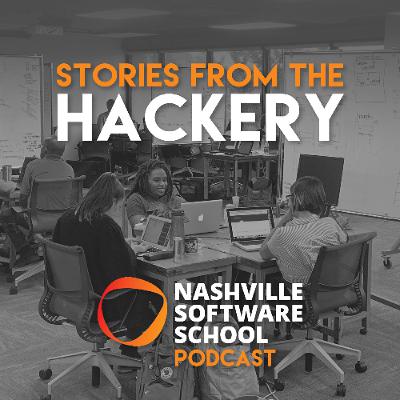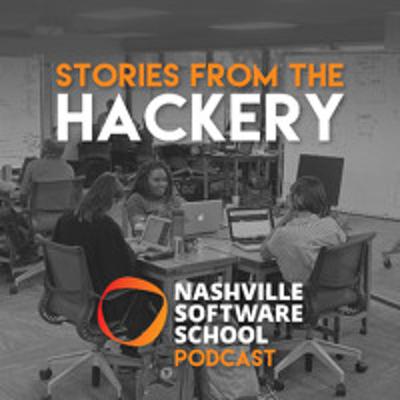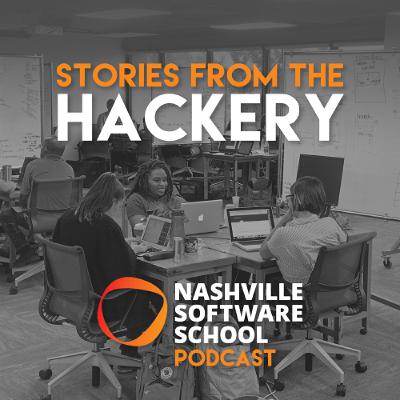The Developers Ally: GenAI's True Role In Software Creation - Stories From The Hackery Podcast
Update: 2024-03-12 1
1
Description
Nashville Software School Founder and CEO John Wark sits down with Full-time Web Development Lead Instructor, Steve Brownlee, to discuss Steve’s research in how generative AI can be a helpful tool the popularity of LLMs continue to grow in software development.
Learn more about Nashville Software School and our upcoming programs when you visit our website: https://NashvilleSoftwareSchool.com
0:00 Intro
1:53 : Generative AI is creating a new set of skills that developers need to learn
5:29 How NSS grads were using generative AI in mid-2023
9:30 The generative AI hype cycle & NSS’s exploration
14:05 How have NSS’s students learned to use generative AI as a learning assistant
20:04 Deepening our understanding of generative AI
24:50 Steve Brownlee’s exploration of generative AI for developers
31:40 Can these tools handle system level tasks?
42:52 Exploration with GitHub Copilot
49:33 Grading ChatGPT, Claude, and GitHub Copilot models
51:10 Takeaways: How we plan to incorporate generative AI and prompt engineering into our Web Developer program
1:01:25 Final Thoughts
Resources References in this podcast:
Steve Brownlee’s blog post: https://www.stevebrownlee.com/genai-stole-my-work/
Chat GPT: https://chat.openai.com/
Claude: https://claude.ai/login?returnTo=%2F
Copilot: https://github.com/features/copilot
Language References found in the podcast:
GenAI = Generative AI. Refers to artificial intelligence systems that have the capability to generate new content, such as images, text, audio, or even video, that is similar to, or inspired by, the data they were trained on. These systems are designed to learn the underlying patterns and structures within the data and then generate novel outputs based on that understanding.
LLMs = Large Language Models. Refers to a type of artificial intelligence (AI) model that has been trained on vast amounts of text data in order to understand and generate human-like language. These models, such as OpenAI's GPT (Generative Pre-trained Transformer) series, are designed to process and generate text in a wide range of contexts, tasks, and languages.
Foundation Model = Foundation models use self-supervised learning to create labels from input data. This means no one has instructed or trained the model with labeled training data sets. This feature separates LLMs from previous ML architectures, which use supervised or unsupervised learning.
Emergent Behavior = Refers to actions or patterns that weren't explicitly programmed into an AI system but developed as a natural outcome of its complexity and interactions. Imagine a colony of ants. No single ant has the blueprint for the colony's intricate behavior.
Producer & Editor: Jessica Grande
Learn more about Nashville Software School and our upcoming programs when you visit our website: https://NashvilleSoftwareSchool.com
0:00 Intro
1:53 : Generative AI is creating a new set of skills that developers need to learn
5:29 How NSS grads were using generative AI in mid-2023
9:30 The generative AI hype cycle & NSS’s exploration
14:05 How have NSS’s students learned to use generative AI as a learning assistant
20:04 Deepening our understanding of generative AI
24:50 Steve Brownlee’s exploration of generative AI for developers
31:40 Can these tools handle system level tasks?
42:52 Exploration with GitHub Copilot
49:33 Grading ChatGPT, Claude, and GitHub Copilot models
51:10 Takeaways: How we plan to incorporate generative AI and prompt engineering into our Web Developer program
1:01:25 Final Thoughts
Resources References in this podcast:
Steve Brownlee’s blog post: https://www.stevebrownlee.com/genai-stole-my-work/
Chat GPT: https://chat.openai.com/
Claude: https://claude.ai/login?returnTo=%2F
Copilot: https://github.com/features/copilot
Language References found in the podcast:
GenAI = Generative AI. Refers to artificial intelligence systems that have the capability to generate new content, such as images, text, audio, or even video, that is similar to, or inspired by, the data they were trained on. These systems are designed to learn the underlying patterns and structures within the data and then generate novel outputs based on that understanding.
LLMs = Large Language Models. Refers to a type of artificial intelligence (AI) model that has been trained on vast amounts of text data in order to understand and generate human-like language. These models, such as OpenAI's GPT (Generative Pre-trained Transformer) series, are designed to process and generate text in a wide range of contexts, tasks, and languages.
Foundation Model = Foundation models use self-supervised learning to create labels from input data. This means no one has instructed or trained the model with labeled training data sets. This feature separates LLMs from previous ML architectures, which use supervised or unsupervised learning.
Emergent Behavior = Refers to actions or patterns that weren't explicitly programmed into an AI system but developed as a natural outcome of its complexity and interactions. Imagine a colony of ants. No single ant has the blueprint for the colony's intricate behavior.
Producer & Editor: Jessica Grande
Comments
In Channel












